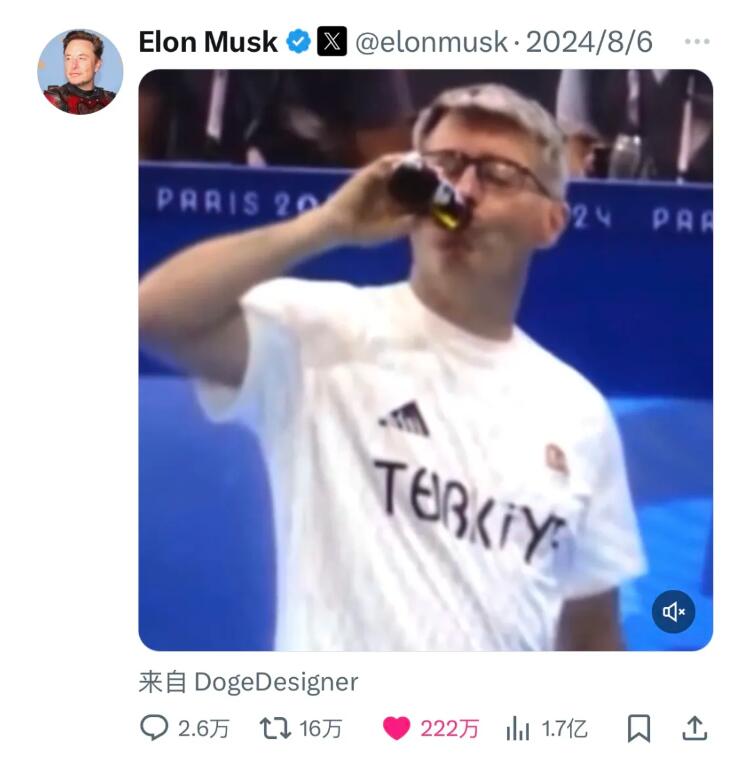Recently, an AI-generated video featuring Turkish archer Mete Gazoz has sparked widespread discussion on social media, even catching the attention of tech mogul Elon Musk, who shared it. This video not only showcases the remarkable advancements in AI technology but also reflects the rise and influence of AI-created content in contemporary online culture.
Gazoz, who won a silver medal at the Olympics with his unique relaxed posture, quickly became a hot topic on the internet. AI creators seized this trend, utilizing the latest video generation technology to transform Gazoz's competition photos into an imaginative video. In the clip, Gazoz appears to transition instantly from a tense competition scene to a casual everyday setting, even leisurely sipping beer. This dramatic contrast and sense of humor immediately drew the attention of many netizens.

Musk's share undoubtedly brought more attention to the video. As of now, the video has surpassed 170 million views, a staggering number that not only reflects the public's keen interest in AI creations but also underscores the powerful role of social media in information dissemination.
In addition to the video featuring Gazoz, many other AI-generated works have emerged online. For instance, creators have used AI to place actors from "Game of Thrones" in disco-dancing scenarios, creating a surreal visual effect. The popularity of these works indicates that AI-generated content has become a new phenomenon in online culture and a key to traffic.
Behind this creative fervor lies the rapid advancement of AI technology. Currently, several AI video production platforms (such as Keling and Jimeng in China, and Runway and Luma abroad) have updated their "first and last frame" features, making the "divine transition" effects in videos more fluid and natural. This technological progress offers creators more possibilities and provides audiences with an unprecedented visual experience.










